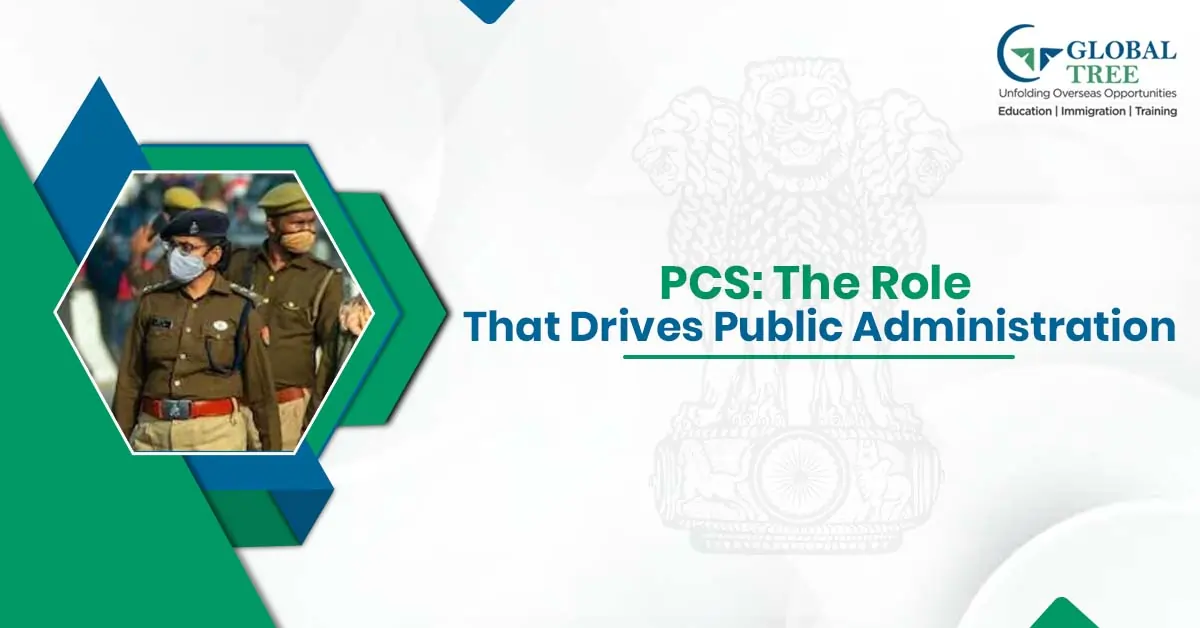Full form of PCS

Introduction
The Provincial Civil Services (PCS) represents a subtle yet formidable force that drives the complex framework of local governance. Often working behind the scenes, PCS officers are the unsung architects of regional progress, ensuring the steady pulse of development, law enforcement, and public welfare in their states. But what lies beneath the surface of this prestigious service? PCS, often overshadowed by the allure of national-level roles like the IAS, holds a unique, mysterious power at the heart of state administration. With each PCS officer’s journey, a story of dedication and responsibility unfolds, impacting millions of lives across the provinces.
What is PCS?
The Provincial Civil Services, or PCS, is the gateway to becoming the unsung guardians of a state’s destiny. Conducted by state-level Public Service Commissions like UPPSC, MPPSC, and others, PCS recruits are selected to take on key roles that shape regional governance. From Deputy Collectors to Sub-Divisional Magistrates, PCS officers command authority, yet work behind the scenes, maintaining the delicate balance of power, law, and development in their regions. It’s a responsibility that carries both weight and mystery, as they control the pulse of progress at the state level.
The Enigmatic Importance of PCS
Behind every well-run district, behind every seamless administrative operation, stands a PCS officer. But their work is often a riddle—seen by many, understood by few. Why does this service hold such significance in the state’s framework?
(Read More: Who is the Chief Election Commissioner? What is their role?)
Local Governance: PCS officers serve as the backbone of local administration, ensuring that the wheels of governance turn smoothly. Their work connects the state government with the people, weaving policies into action. They are the ones quietly working to keep the system functional, effective, and fair.
Law and Order: PCS officers posted as Deputy Collectors or Sub-Divisional Magistrates are the silent sentinels of law and order, tasked with ensuring peace in regions prone to unrest or crisis. Their decisions, often made in the shadows of authority, keep the fragile balance intact.
Revenue Administration: A key part of their role is managing the state’s finances—handling land revenue, taxes, and property records. These officers ensure that the state’s financial veins are healthy, contributing to the overall prosperity, but without much fanfare.
Development Programs: PCS officers are often entrusted with leading developmental projects—whether building roads or implementing social welfare schemes. They work under the radar, shaping the future of entire communities, ensuring that development reaches even the most remote corners of the state.
What are the Responsibilities of a PCS Officer?
The responsibilities PCS officers carry are vast and varied, often going unnoticed by the public eye. Their roles may differ by region and department, but their work is always critical. From maintaining peace and order to collecting revenue, overseeing development projects, and managing crisis situations, their duties are the unseen gears of the state’s progress.
(Note: Even a Sub-Inspector (SI) plays a crucial role in maintaining law and order in the country. Find out the steps to become an SI.)
PCS vs IAS: A Subtle Distinction
While IAS officers may enjoy the limelight on a national stage, PCS officers are the hidden architects of regional development. Their jurisdiction is state-bound, but their impact is monumental. And though the paths may differ, PCS officers, through years of dedication, can ascend to the prestigious ranks of the IAS, proving that their journey, though quieter, is no less significant.
Unlocking the Future of PCS officer
The Provincial Civil Services remain one of the most revered career paths for those driven by a desire to serve their state, to operate within its borders while quietly making an impact. It’s a role that requires both strength and subtlety, a mix of governance and mystery.
(You may also like: Why is the civil services exam considered one of the toughest exams in the world?)
FAQs about PCS
How is PCS different from IAS?
While IAS officers serve both state and national interests, PCS officers focus exclusively on state governance, though they can be promoted to IAS based on performance.
Can a PCS officer become an IAS?
Yes, with experience and merit, PCS officers can be promoted to IAS.
What is the salary of a PCS officer?
The average salary of a PCS officer ranges from INR 55,000 to INR 1,30,000 per month, depending on the post and experience.



 964 260 9000
964 260 9000